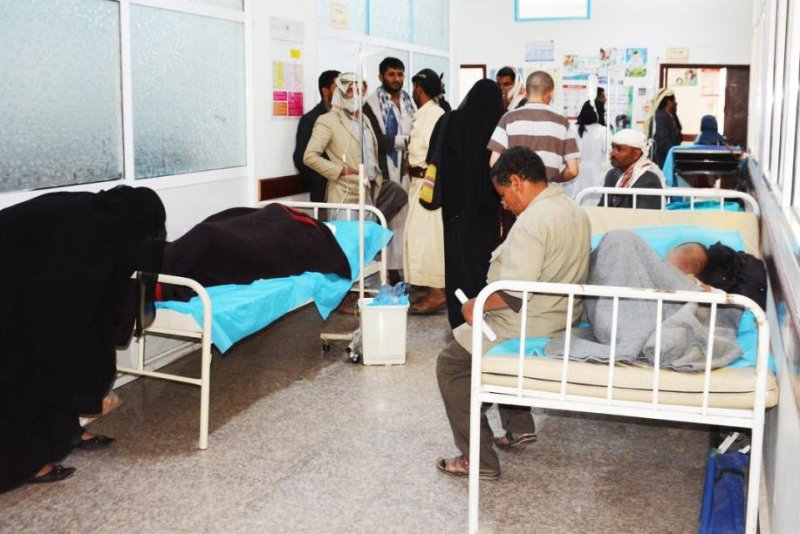The World Health Organization is reporting that the cholera epidemic in Yemen has surpassed 101,800 cases with 789 deaths since April 27. Photo courtesy WHO
June 8 (UPI) -- The World Health Organization reports the number of suspected cholera cases in Yemen has surpassed 101,800 -- doubling in just more than a week.
According to the United Nations Office for the Coordination of Humanitarian Affairs, or OCHA, Yemen is in the grips of a severe cholera epidemic "of an unprecedented scale."
The outbreak was first reported in October and cholera has since been identified in 19 governorates, or territories. On May 30, the United Nations Children's Fund, or UNICEF, said about 53,000 cases have been identified.
The WHO said today on its Yemen Twitter account that more than half of the suspected cholera cases have been reported in five territories. The organization said the epidemic has killed almost 800 people.
Cholera is an infection of the small intestine by the Vibrio cholerae bacteria, which is found in seawater and other non-fresh water sources. The disease causes severe diarrhea, which can be deadly because it quickly dehydrates patients and leads to substantial electrolyte imbalance.
Authorities in the Sana'a territory, which has recorded the highest resurgence in cases, declared a state of emergency May 14 due to the inability of the health system to cope with the magnitude of the crisis.
The OCHA attributes the rapid spread of the disease to failing health infrastructure in Yemen, where more than half of all health facilities no longer function due to conflict, according to OCHA.
Yemen's health, water and sanitation systems are collapsing after two years of war between government forces and the rebel Houthi movement.
The OCHA also cited unpaid health and sanitation workers, a lack of imported medical supplies, unreliable garbage collection and inadequate water access as reasons contributing to the crisis.
The upcoming rainy season, widespread food insecurity and malnutrition are compounding the risk of the epidemic spreading further, according to the OCHA.
The humanitarian health crisis has OCHA and others calling for a coordinated humanitarian response.















